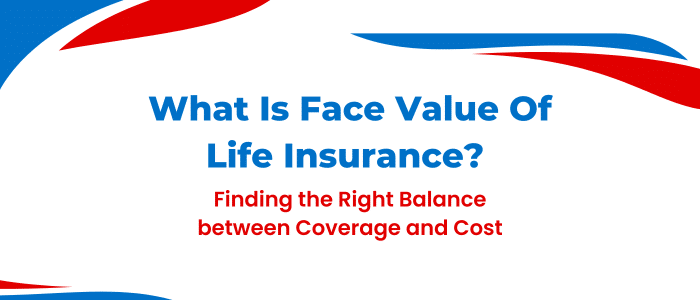It’s important to strike a balance between having enough coverage and keeping the payments affordable.
Changing Face Value over Time
When You Might Need More Coverage
As life changes, you might need more insurance. This could be because of new debts, a growing family, or inflation.
Pros and Cons of Lowering Coverage
Sometimes, lowering your coverage can save you money on premiums and match your reduced financial needs, but it might also leave your loved ones with less support.
The Role of Riders in Face Value
Common Riders and Their Impact
Riders are additional benefits you can add to your life insurance policy. Examples include options to access part of the death benefit early or to pause premium payments.
How Riders Adjust Your Coverage
Some riders can increase your coverage by offering extra benefits, while others might change the payout based on specific situations.
Payouts and Beneficiaries
How Payouts Work
When the policyholder passes away, the insurance company pays the coverage amount to the chosen beneficiaries.
What Beneficiaries Need to Know
Beneficiaries receive the payout and can use it to cover expenses and debts. Keeping beneficiary information current is crucial.
Tax Aspects of Payouts
Usually, life insurance payouts aren’t taxed as income, though there could be taxes if the estate is large.
Clearing Up Common Myths About Face Value
Face Value vs. Death Benefit
While face value and death benefit are often confused, it’s important to know that the face value is the original amount, while the death benefit can include additional amounts from riders or adjustments.
Payout Guarantees Explained
Many think that face value is always guaranteed, but certain conditions or exclusions might affect the payout.
Real-World Examples: Calculating Face Value
Example 1: Young Family with Mortgage
A young family might choose a high face value to cover their mortgage, children’s education, and income replacement needs.
Example 2: Retirees Planning Their Estate
A retiree might prefer a lower face value to cover final expenses and leave a small legacy, considering their reduced financial burdens.
Common Questions About Face Value
How Do I Find the Right Face Value?
Evaluate your financial needs, and future goals, and get advice from a financial expert to decide on the right face value.
Does Face Value Affect Cash Value?
Face value and cash value are separate; while face value influences premiums, it doesn’t directly impact cash value.
Can Face Value Be Changed After Purchase?
Yes, many policies let you adjust the face value, but it may require underwriting and premium changes.
How Does Health Influence Face Value?
Your health is key in determining the face value you can get. Better health usually means higher face value at lower costs.
What Happens If I Outlive My Term Life Policy?
If you outlive your term policy, the coverage ends and no payout is made. You can renew or convert it to a permanent policy, depending on the terms.
Conclusion
Grasping the concept of face value in life insurance is crucial for picking the right policy and ensuring your loved ones are taken care of financially. It impacts your premiums, benefits, and overall financial security. Be sure to consider all your needs and goals when selecting a face value to provide peace of mind.
FAQs
What’s the Difference Between Face Value and Net Amount at Risk?
The net amount at risk is the difference between the face value and the cash value. It shows the insurer’s potential risk.
Can Face Value Change Automatically?
Some policies have face values that can be adjusted based on specific conditions or indexing.
How do Insurers Decide on the Face Value?
Insurance companies use factors like age, health, income, and financial obligations to figure out the appropriate face value.
Are There Penalties for Changing the Face Value?
Altering the face value might need underwriting and premium adjustments, but specific penalties depend on the policy.
Is Face Value the Same for All Life Insurance Types?
No, face value can differ widely between term, whole, universal, and variable life insurance policies based on their design and benefits.
